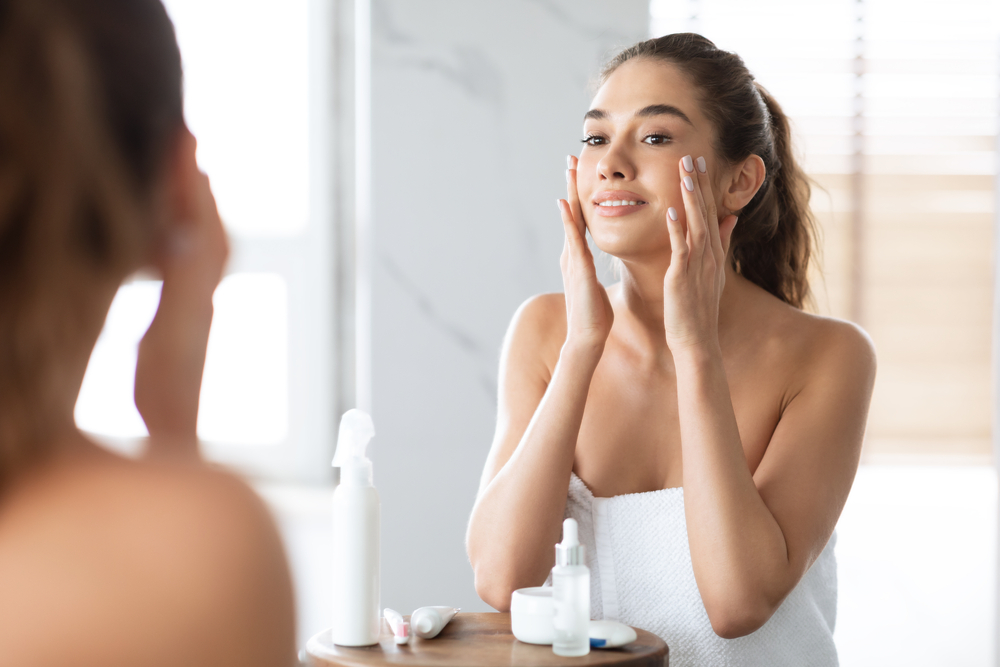Spring break season is here, and whether you’re hitting the beach, exploring new cities, or hiking in the great outdoors, your skin needs special attention during your travels. We sat down with the experts at Borealis Dermatology to answer some common questions about spring break skin care.
Q1: What are the top skin care concerns during spring break?
A:
During spring break, your skin is exposed to a lot of environmental changes: increased sun exposure, saltwater, chlorine from pools, and even temperature fluctuations. The most common concerns are sunburn, dehydration, and irritation from chlorine or saltwater. It’s important to plan ahead and protect your skin to avoid these issues.
Q2: How can I prevent sunburn while on vacation?
A:
Prevention is key! Always wear sunscreen with an SPF of at least 30, and reapply it every two hours, especially if you’re swimming or sweating. Choose a broad-spectrum sunscreen that protects against both UVA and UVB rays. Don’t forget areas like the ears, the back of your neck, and your feet. Wearing a wide-brimmed hat and protective clothing can also give your skin an added layer of protection.
Q3: Are there any special sunscreen tips for spring break?
A:
Yes, absolutely! Here are a few tips:
- Water-resistant sunscreen: If you’re swimming or sweating, make sure your sunscreen is water-resistant.
- Reapply often: Even if you’re using a water-resistant sunscreen, it’s important to reapply every 2 hours or immediately after swimming.
- Don’t skip your lips: Use a lip balm with SPF to protect your lips from sunburn.
- Check the expiration date: Sunscreens lose effectiveness over time, so make sure yours is still good to use.
Q4: How can I keep my skin hydrated while traveling?
A:
Traveling can dehydrate your skin, especially with long flights, changes in weather, or spending time in the sun. To keep your skin hydrated:
- Drink plenty of water: Aim for at least 8 glasses of water a day to maintain internal hydration.
- Use a hydrating moisturizer: Choose a lightweight, non-comedogenic moisturizer that suits your skin type. If you’re going to be in the sun, look for one with added SPF.
- Use a facial mist: A hydrating facial mist can provide a quick refresh and boost moisture levels while on the go.
- Avoid hot showers: Hot water can strip your skin of moisture, so opt for lukewarm showers to preserve hydration.
Q5: What should I do if I get sunburned?
A:
If you do end up with sunburn, here are a few things you can do to minimize the damage:
- Cool down the skin: Take cool (not cold) showers to help soothe the skin. Avoid hot water, which can aggravate the burn.
- Moisturize: Apply a soothing moisturizer or aloe vera gel to calm inflammation and keep your skin hydrated.
- Stay out of the sun: Give your skin time to heal by avoiding further sun exposure.
- Drink plenty of water: Sunburn can dehydrate your body, so rehydrate by drinking water and hydrating foods like watermelon or cucumber.
- Seek medical attention: If your sunburn is severe, with blisters or swelling, see a healthcare professional for advice.
Q6: What skincare should I avoid while on vacation?
A:
While you’re on vacation, it’s best to keep your skincare routine simple and avoid products that might irritate your skin. Here’s what to skip:
- Harsh exfoliants: Over-exfoliating can leave your skin more sensitive to the sun. Stick to gentle cleansers and avoid using harsh scrubs.
- Heavy makeup: When you’re in the sun, it’s important to let your skin breathe. If you wear makeup, opt for something lightweight and non-comedogenic (won’t clog pores).
Q7: What if I have sensitive skin? How can I protect it during spring break?
A:
If you have sensitive skin, you need to be extra cautious during spring break. Stick to fragrance-free, hypoallergenic skincare products that are designed for sensitive skin. Look for physical sunscreens containing zinc oxide or titanium dioxide, as these tend to be gentler than chemical sunscreens. When swimming, make sure to rinse your skin with fresh water immediately after being in chlorine or saltwater to avoid irritation.
Q8: Are there any treatments I should consider before spring break?
A:
Before heading on vacation, consider scheduling a consultation with us to discuss your skin care needs. If you’re concerned about sun damage or age spots, we can discuss preventive treatments that help protect and enhance your skin’s appearance.
Final Tips for Spring Break Skin Care:
- Always have a good sunscreen with you, even for day-to-day activities.
- Don’t forget to moisturize after exposure to the sun, saltwater, or chlorine.
- Be mindful of how the sun can impact your skin and take protective measures, like wearing hats or seeking shade.
Have a safe and fun spring break! For any skin care concerns before or after your vacation, don’t hesitate to contact us at Borealis Dermatology.






